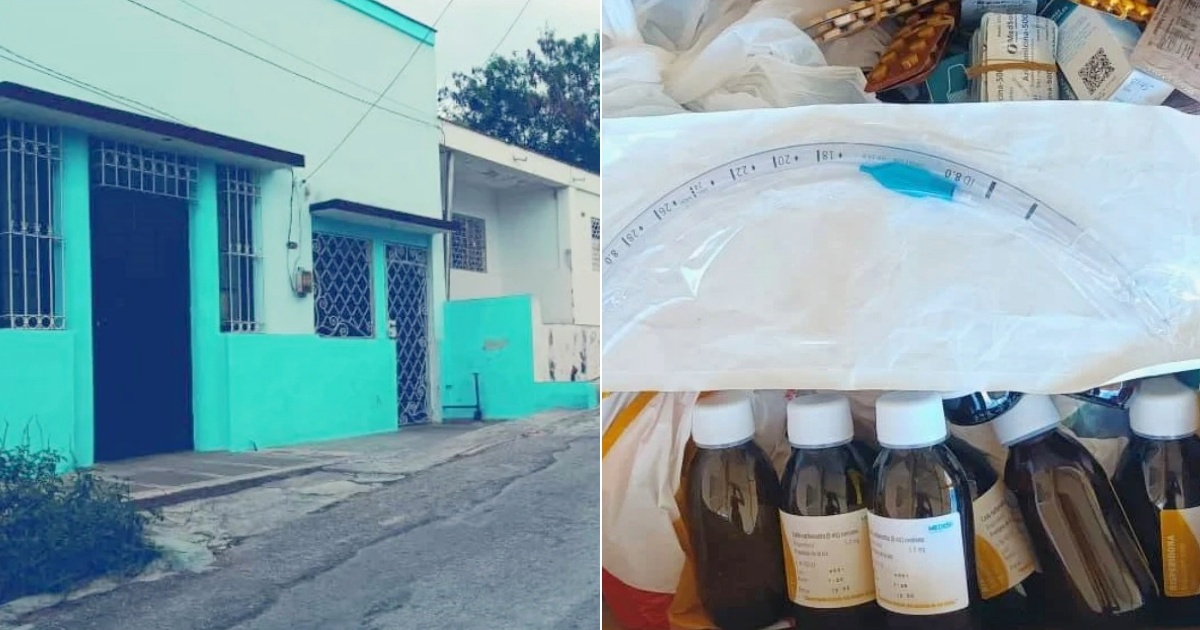Kleisy Suárez, a Cuban national recently arrested for hoarding a large supply of medications for informal sale, has been the center of attention in Manzanillo. Suárez, identified as a physical therapist, father of two, and a Jehovah's Witness, was detained after police discovered a significant stash of drugs and medical supplies at his home on Cocal Street, as reported by 14yMedio.
The drugs, both imported and domestically produced, were seized in the midst of a severe medication shortage in Cuba. Suárez allegedly marketed these supplies on social media, offering home delivery services. His arrest has stirred the local community, as he was well-regarded among many residents despite the circumstances.
From Family Support to an Informal Business
Initially, Suárez relied on medications sent by his family from the United States. Over time, he expanded his offerings to include locally produced drugs, the origins of which are currently under investigation. His inventory included antibiotics, antiparasitics, pain relievers, anti-inflammatories, antihistamines, blood pressure medications, heart disease treatments, eye drops, ointments, syringes, and suturing materials.
Despite operating within Cuba's black market, his prices were reportedly lower than similar vendors, according to customers interviewed by 14yMedio.
Divided Opinions in Manzanillo
Suárez's detention has sparked mixed reactions among Manzanillo's residents. Some criticize the resale of scarce medications for profit, while others argue that informal pharmacies are sometimes the only way to access essential treatments. "I don't think he did it out of greed, but out of necessity," commented José, a neighbor.
Working in a rehabilitation center, Suárez struggled to support his family on his salary alone, leading him to sell the medications sent from abroad. For some, his mistake was expanding his operation with state-sourced drugs.
Scapegoating Amid a National Crisis?
The dire shortage of medications in Cuba has forced many patients to turn to unofficial channels for their treatments. "Thanks to him, people got by because the state couldn't meet the demand, especially in the middle of an epidemiological crisis," remarked another local resident.
While some fear that Suárez is being used as a scapegoat in the government's crackdown on the black market, they doubt this will address the real issue of drug shortages. "You could tell he wasn't a bad person or flashy," said someone who knew him, concerned about his future.
The revelation of Suárez's operation has also incited outrage among the public, who are struggling with empty hospitals and pharmacies. Social media has erupted with accusations of corruption within Cuba's healthcare system, demanding thorough investigations.
Medication Shortage: A National Crisis
Cuba's medication shortage is one of the most severe challenges facing its citizens, impacting both chronic patients and those in need of urgent care. The scarcity of basic medical supplies has forced many to rely on foreign donations, black markets, or neighborly exchanges to obtain essential drugs like antibiotics, pain relievers, and treatments for cardiovascular diseases or diabetes.
This health crisis, exacerbated by a lack of raw materials and the inefficiency of the state's production and distribution systems, has led to complications in treatable diseases and an increase in preventable deaths. The Cuban government acknowledges the shortage but blames external factors, while experts and citizens cite mismanagement, corruption, lack of investment, and centralization as the root causes of the supply crisis.
Prices in the informal market have skyrocketed, leaving the most vulnerable in dire straits. Desperate for medications, many families have turned to support networks abroad or solidarity campaigns organized by the diaspora, highlighting the deep crisis of a healthcare system that, in theory, offers free services but, in practice, fails to provide even the most basic necessities to its people.
Investigating the Medication Crisis in Cuba
Why was Kleisy Suárez arrested?
Kleisy Suárez was arrested for possessing a large quantity of medications and medical supplies at his home, which he was allegedly selling informally in Manzanillo.
What types of medications were found in Suárez's possession?
Authorities found a variety of medications, including antibiotics, antiparasitics, pain relievers, anti-inflammatories, antihistamines, blood pressure medications, heart disease treatments, eye drops, ointments, syringes, and suturing materials.
How has the shortage of medications affected Cuban citizens?
The scarcity of medications has forced many Cubans to depend on foreign donations, black markets, or exchanges among neighbors to obtain essential drugs, impacting both chronic patients and those in need of urgent care.
